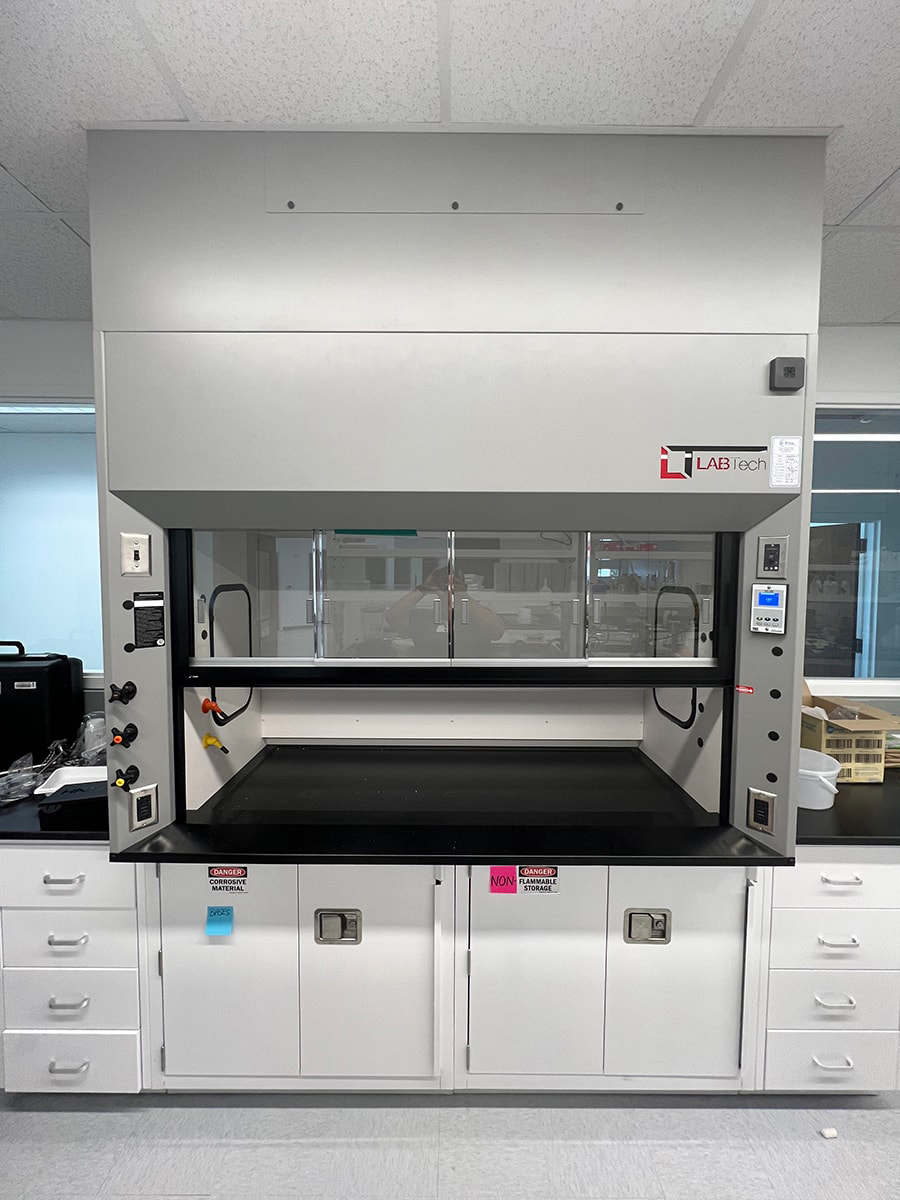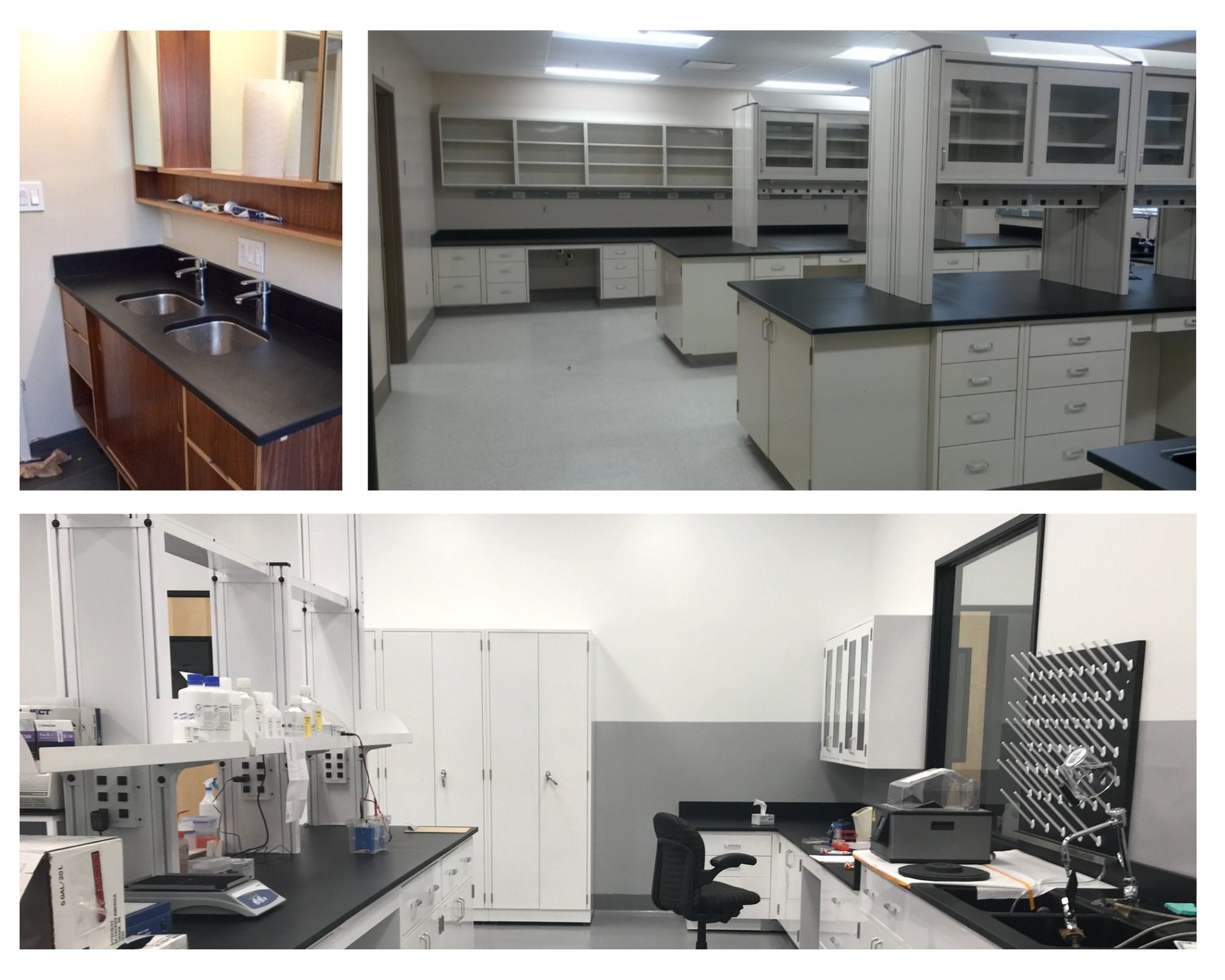Phenolic resin has gained significant popularity as a preferred material for laboratory-grade countertops due to its exceptional properties and versatility. However, concerns regarding its safety and potential hazards have prompted extensive investigations to ensure its suitability for various applications. In this blog, we delve into the topic of phenolic resin safety, exploring its chemical composition, compliance with occupational safety standards, and its impact on human health.
Understanding the safety aspects of phenolic resin is crucial for laboratory environments where researchers and professionals handle hazardous substances and conduct critical experiments.
We will examine the chemical structure of phenolic resin, the properties of phenol, and the implications of exposure to formaldehyde, a component commonly associated with phenolic resin. Additionally, we will explore the inherent safety measures in resin manufacturing and the range of applications where phenolic resin proves to be a safe and reliable choice.
By shedding light on the safety considerations surrounding phenolic resin, we aim to provide valuable insights for individuals working with this material, ensuring a secure and healthy laboratory environment.
Debunk the Myth: Understanding the Safety Profile of Phenolic Resin
Phenolic resin has often been subject to misconceptions regarding its safety. However, a comprehensive understanding of its safety profile reveals that phenolic resin is indeed a safe material for laboratory-grade countertops.
The chemical composition of phenolic resin is carefully engineered to ensure its safety and reliability. It is composed of phenol and formaldehyde, which undergo a controlled polymerization process to form a stable and durable resin.
Chemical Composition of Phenolic Resin – Unveil its Safe and Reliable Nature
The chemical composition of phenolic resin plays a significant role in its safety profile. Phenol, one of its key components, is derived from sustainable resources and possesses excellent chemical resistance properties.
It forms a strong bond with formaldehyde during the manufacturing process, resulting in a durable and stable resin matrix. Phenolic compounds have been extensively studied and tested, confirming their safety for use in laboratory settings.
Occupational Safety and Health Administration Standards: Phenolic Resin’s Compliance
The Occupational Safety and Health Administration (OSHA) has established stringent standards to ensure workplace safety. Phenolic resin countertops comply with these standards, providing assurance of their safety in laboratory environments. OSHA sets guidelines for exposure limits to formaldehyde, which is a component of phenolic resin.
Manufacturers can reduce any potential health concerns by following these laws, which guarantee that the formaldehyde emissions from phenolic resin are within safe limits. Additionally, phenolic resin countertops’ safety and compliance with OSHA regulations are further enhanced by correct handling and upkeep, offering a safe working environment for laboratory staff.
Explore the Properties of Phenol – Assess its Safety in Laboratory Environments
Phenol is a key component of phenolic resin, and understanding its properties is crucial in assessing the safety of phenolic resin in laboratory environments. Phenol is a basic chemical compound that exhibits excellent chemical resistance and stability. It is known for its low volatility and relatively low toxicity when properly handled.
These properties make phenol a suitable choice for laboratory-grade countertops, as it ensures minimal risk of hazardous chemical reactions or emissions. When phenol undergoes polymerization with formaldehyde to form phenolic resin, its inherent properties are further enhanced, resulting in a safe and reliable material for laboratory applications.
Phenolic Compounds and Human Health: Examine the Impact of Exposure
Phenolic compounds, including phenolic resin, have been extensively studied to evaluate their impact on human health. One concern often associated with phenolic resin is exposure to formaldehyde.
However, when phenolic resin countertops are properly manufactured and maintained, formaldehyde emissions are kept within safe levels, ensuring minimal risk to human health. Studies have shown that occupational exposure to formaldehyde from phenolic resin countertops is well below the recommended exposure limits established by regulatory bodies such as the Occupational Safety and Health Administration.
Additionally, the durable nature of phenolic resin countertops minimizes the release of potentially harmful particles or volatile organic compounds (VOCs), further enhancing the safety profile of these countertops.
Responsible Manufacturing – Ensuring Safe Practices in Phenolic Resin Production
The manufacturing process of phenolic resin plays a crucial role in ensuring its safety. Responsible manufacturers adhere to strict protocols and quality control measures to produce a high-quality phenolic resin that meets safety standards.
This includes using sustainable resources for phenol production and employing advanced techniques to minimize impurities and maintain consistent chemical composition. The production process also involves carefully controlling the polymerization of phenol and formaldehyde to ensure the formation of a stable and reliable resin matrix.
By following responsible manufacturing practices, manufacturers can ensure the safety of phenolic resin and provide laboratory-grade countertops that meet the necessary standards for human health and environmental sustainability.
The Versatile Applications of Phenolic Resin: Safe Solutions for Various Industries
Phenolic resin’s versatile nature extends beyond laboratory-grade countertops, making it a safe and reliable choice for various industries. Its exceptional chemical resistance, mechanical strength, and thermal stability make it suitable for a wide range of applications where safety is paramount.
In the electrical industry, phenolic resin is commonly used as an insulation material due to its excellent electrical properties and resistance to high temperatures. It provides reliable insulation and protection for electrical components, ensuring the safety and efficiency of electrical systems.
Phenolic resin also finds applications in the manufacturing of abrasive materials, where its inherent process safety and bonding strength are crucial. It serves as a binder for abrasive grains, creating durable and effective abrasive products used in grinding, polishing, and cutting operations.
The automotive industry benefits from phenolic resin’s heat resistance and mechanical properties. It is used in the production of heat-resistant components, such as brake pads and engine parts, ensuring reliable performance under demanding conditions.
Furthermore, phenolic resin has been utilized in the construction industry for its fire resistance and durability. It is employed as a protective lining in structures and equipment exposed to aggressive environments, providing exceptional resistance to corrosion, chemicals, and extreme temperatures.
Trust ResinTops.net and its Phenolic Resin’s Contribution to Environmentally Conscious Practices
At ResinTops.net, we are committed to environmentally conscious practices and offer high-quality phenolic resin solutions that align with sustainable principles. By choosing our phenolic resin products, you not only benefit from their exceptional properties but also contribute to a greener future.
Our phenolic resin countertops and materials are laboratory-grade countertops. We adhere to strict environmental standards throughout the resin manufacturing process, minimizing waste generation and energy consumption.
By opting for phenolic resin from ResinTops.net, you support responsible manufacturing practices that prioritize the reduction of environmental impact. Our commitment to sustainability extends beyond production, as we also provide guidance on proper disposal and recycling methods for phenolic resin products, ensuring minimal harm to the environment.
Make a conscious choice for your laboratory or industrial applications by trusting ResinTops.net and our environmentally friendly phenolic resin. Join us in our mission to create a safer and more sustainable future.
Contact us today at 800-476-5228 or email us at sales@labtechsupplyco.com to explore our range of phenolic resin solutions and experience the perfect blend of performance, safety, and environmental responsibility.



